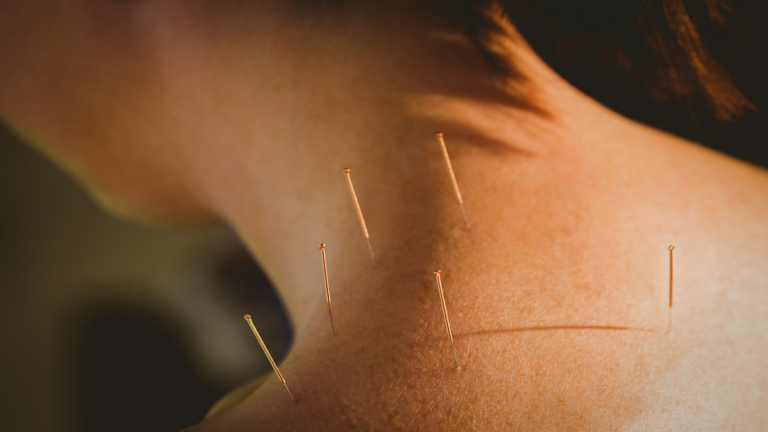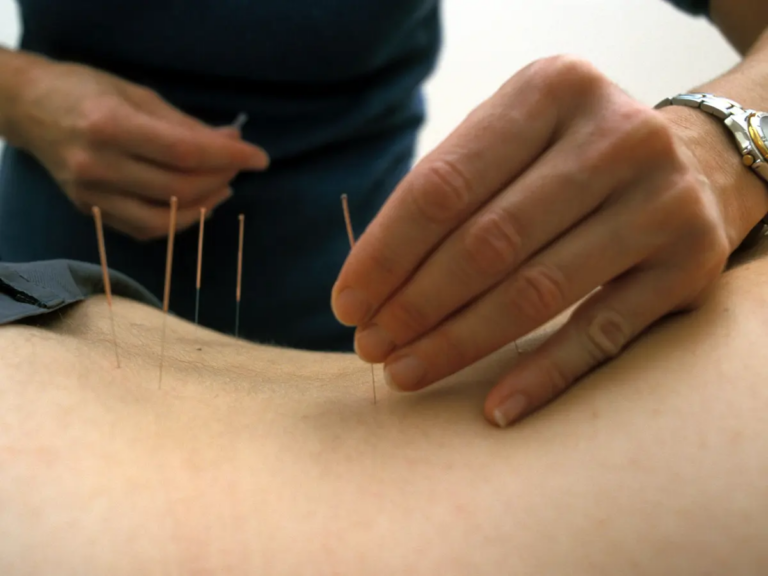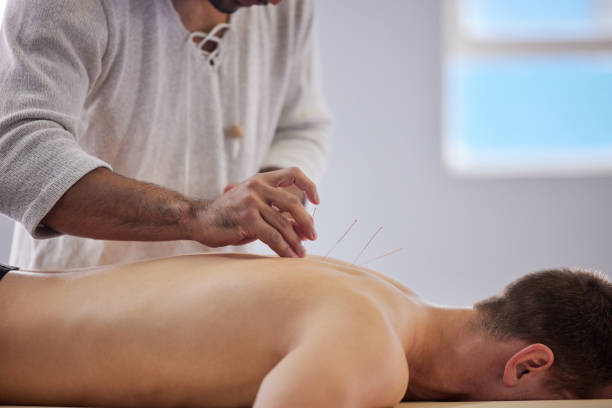
Worldwide, acupuncture is increasingly becoming popular because of its holistic approach towards health and well-being. It is a practice that dates back to ancient traditional Chinese medicine. This article will show you what occurs in your body during and after an acupuncture appointment. We will cover everything from the moment the gentle needles enter through different points in human skin to the physiological and psychological effects experienced thereafter. Therefore, we will take you through some unknown secrets about acupuncture, which may give rise to an improved state of health.
How does acupuncture stimulate the body's natural healing processes?
Acupuncture stimulates the body’s healing by inserting needles into specific points, enhancing blood flow, and triggering endorphin release.
The treatment uses certain acupuncture points to activate the nervous system and improve circulation. This process aids in supplying nutrients and removing waste materials at the cellular level.
When endorphins are released, they act as natural painkillers, reducing discomfort and stress. Through this holistic stimulation, the body’s own healing ability is encouraged to reinstate balance, which leads to improved health, ultimately resulting in better physiological and psychological well-being.
What are the physiological mechanisms behind acupuncture's effectiveness?
Acupuncture’s effectiveness includes neural modulation, hormone regulation, and immune system activation.
This forms part of the treatment’s influence on various biological pathways, including neurotransmitters such as serotonin and dopamine, which are important for mood regulation. Acupuncture also acts upon the hypothalamic-pituitary-adrenal axis leading to the balancing of cortisol levels (stress hormones).
In addition, it increases white blood cell activity thereby enhancing immune response. Summarily, these physiological changes lead to diminished pain, improved emotional health, and increased body function thereby demonstrating that acupuncture has an all-encompassing effect on various systems within the human body.

What are the most common conditions treated with acupuncture?
Acupuncture treats conditions like chronic pain, anxiety, insomnia, digestive issues, and migraines.
It is widely used in musculoskeletal aches, such as back pains, among others because it has anti-inflammatory effects and relieves pain. Additionally, by promoting relaxation and reducing cortisol levels in the body, acupuncture can help manage stress-related disorders.
Acupuncture regulatory activities are beneficial for women’s health issues like fertility problems or irregular menstrual cycles. It tackles physical well-being alongside mental concerns, thus improving life quality in its entirety and, therefore, an adaptable and valuable therapy tool.
How does acupuncture interact with the nervous system?
Acupuncture interacts with the nervous system by stimulating nerve fibers, which transmit signals to the brain and spinal cord.
This interplay really works on some of the nerves of pain and autonomic reactions. The needles stimulate the discharge of chemical signals such as endorphins and serotonin that help in modulating pain and enhancing mood.
In this process, acupuncture helps to balance the sympathetic and parasympathetic nervous systems thereby contributing to relaxation and homeostasis. This therefore reduces stress, mitigates pain by manifold degrees, and supports general nervous system health.

What Could Happen in Case You Did Acupuncture Incorrectly?
If acupuncture is not done the right way, it can cause problems and make you sick.
Some of its potential side effects are infections from unsterilized needles, bruises, bleeding, and uncommonly severe damage to organs or nerves.
Moreover, a wrong placement of these needles will lead to no relief; it may even make the symptoms worse or create new health problems altogether. As such, ensure that you get acupuncture from a licensed and experienced specialist who can oversee your safety.
During the procedure, it helps direct the treatment to the proper points for effective outcomes; It will also reduce risks while increasing therapeutic benefits associated with this form of therapy.
Can acupuncture enhance the immune system's response?
Yes, acupuncture can improve the immune system by stimulating immune cell production, improving circulation, and reducing inflammation.
By stimulating specific points with needles, this treatment increases the activity of immune cells like T-cells and natural killer cells. As a result of improved blood flow to tissues, it enables enhanced oxygen and nutrient supply to support immune function.
Acupuncture also lowers pro-inflammatory cytokines in order to create an anti-inflammatory environment that will help the body fight infections or recover from illnesses. The modulation of immunity helps enhance the natural defense mechanisms within a person’s body leading to better health as well as prevention against diseases.
How does acupuncture affect emotional well-being and stress levels?
Acupuncture positively affects emotional well-being by managing stress hormones and promoting relaxation.
In terms of affecting autonomic nervous system acupuncture can insert needles at specific points thus reducing sympathetic activity while increasing parasympathetic response. This equilibrium has been found to decrease cortisol levels which then results in reduced anxiety as a whole bringing about lowered stress levels ultimately reducing overall anxiety levels too.
On another note, acupuncture promotes mood, upregulating serotonin, and dopamine release, respectively, causing happiness and relaxation emotions, hence improving sleep quality together, creating a sense of inner peace and calm emotional stability, and effectively addressing emotional stress due to issues.
Does Acupuncture Rewire the Nervous System?
Acupuncture helps your body heal and feel less pain by changing how your nervous system works.
This method includes inserting thin needles into certain parts of the body which are believed to correspond to different illnesses that affect individuals.
Scientific theories indicate that acupuncture triggers neurotransmitter releases like endorphins, which aid in pain modulation and general wellness. Recent research has shown that there can be changes in the brain’s neural pathways with regular sessions of acupuncture, leading to better coping mechanisms upon encountering stressful situations.
Since it increases pain tolerance through alterations of intracranial regulation function, Maybe it is for these reasons that acupuncture has been considered as having the ability to change neural pathways, hence quite helpful for various neurologic and other painful conditions.
Closing Thoughts
Finally, thus far, this blog article has systematically discussed aspects related to the use of acupuncture, giving attention to a holistic approach to healthy living. We took an excursion through its historical background, scientific principles behind how it works, and conditions it could potentially be useful for, ranging from chronic pain to stress-related disorders. It offers a complementary option that enhances minimal side effects while enhancing innate body healing power – within our lives – naturally.

